Graham Reid | | 9 min read
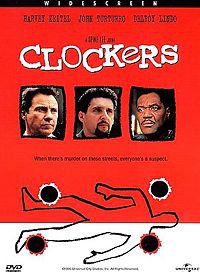
Richard Price barely has to open his mouth and you know where he’s from. The voice is direct with a “yeah, well” shoulder shrug delivery and nothin’s like, too exact, you know?
Words get bitten off, sentences sprinkled with streetwise epithets and answers come before the question is finished. Fast talk because it suits the faster life. Welcome to the Bronx.
This is the voice of Al Pacino, Robert De Niro, Martin Scorsese...the whole Mean Streets school.
It’s the voice – when nailed down in print – that has taken Price “from doing double cheek kisses in a chi-chi restaurant” to talking to street cops, crackheads and, yes Pacino, De Niro and Scorsese.
Price – Bronx born, Bronx raised and Bronx resident – has carved out a career writing about life on his own home turf.
At 24 this graduate of Cornell and a Columbia University writing programme wrote The Wanderers, an “outstanding work of art” according to Hubert Selby in The New York Times Book Review.
His second novel, Blood Brothers, published two years later in 1976, confirmed the belief that here was a gifted writer who could craft gutsy realistic street scenarios and people them with believable characters. Street gangs and cops, dealers and their families...they were all there in Price’s firm, rigorous prose.
Price’s world was the one outside his window, so it comes as little surprise to hear of him being approached at a noisy party in the late 70s by a singer – whom he thought was called Maurice – yelling across the din that The Wanderers had influenced his music.
Maurice was, in fact, Bruce Springsteen, then four years into a high profile career of romanticised visions of street characters.
But Price confounded expectation with his third novel Ladies’ Man, a pre-Aids venture through New York’s gay sex bars. That Price was a serious writer rather than a scrupulous recorder was confirmed with praise from gay academic critic Martin Duberman who called it “the best gay book of the year.” This despite Price being straight.
Then Price’s world changed completely. Drugs and Hollywood moved in. After Ladies’ Man he says he looked back into the Bronx, found he was getting bored with his own autobiography and in a panic started doing coke.
“There’s nothing I could say that’s not a cliché you haven’t heard a million times over. First you’re doing coke so you could write. Then you’re writing so you have an excuse to do the coke.
“I figured since I had a habit anyway I might as well get into screenwriting.”
But screenwriting was good to him (“you get to be rich,” he says with typical directness) and he was good to it. He was nominated for an Academy Award for The Colour of Money (Martin Scorsese’s sequel to The Hustler) and wrote Sea of Love which starred Al Pacino and Ellen Barkin.
And it was during 1985 that Price began to conceive a return to the novel, which he realised with the extraordinary Clockers, a 600-page journey through a tapestry of tenement-block crack-dealing and the peripheral world that cops and crackheads alike inhabit.
It was convincing in its detail, edgy for the lives it revealed and “one hell of a book,” according to David Nicholson, assistant editor for the Washington Post Book World, whose choice of description is entirely apt.
At one level Clockers is a superbly paced detective story as veteran homicide detective Rocco Klein follows leads and blind alleys investigating the murder of a mid-level dealer. His path crosses that of Strike, a 19-year old low-level dealer working his way up the corporate structure of the crack industry.
Yet there is more to the novel than that as Price gets inside the characters, introduces a Mickey Rourke-type Hollywood method actor Sean Touhey who shadows the soon-to retire Klein while looking for movie material, and the novel takes the reader on a nightmare journey through private lives and public hells in the projects and police interview rooms. Clockers feels dirty and smells of stale smoke.
It is other things too. Clockers signalled Price’s return to novel writing, got him headlines when he went nose-to-nose in a bidding war with publishers for a book as yet unwritten, and copped even bigger press when Universal Pictures bought the book and screen rights (screenplay by Price himself) for $NZ3.5 million.
This was the colour of money and it was talking very loudly when Richard Price, then 43, walked in the room.
Looking back on eight years of living with Clockers – and at least a year to come in film production – Price says he found it difficult to stop the research.
Five years of police pads filled with notes and an addiction to hanging out with cops and dealers had to somehow be melded into a book. He says he got to the point where he’d rather be shot at than write that first sentence.
“In ’85 I was hanging out with cops from New York and New Jersey doing research for Sea of Love to get an idea of how homicide detectives work. I saw things not relevant to that project but which engaged my imagination to an even greater degree. I wanted to get back to writing novels and say things about race and class that I didn’t trust to some big movie studio or marketing-driven decision-making process.
“Hanging out I saw how a homicide folder was created and grew into what they called a ‘homicide jacket‘.”
“The voices that wound up inside a jacket fascinated me. You hear all these disparate voices – the guy who was sitting across the street from the murder, the suspect, the best friend of the victim...and of course the middle-class white homicide investigator.
“So I thought I would create my own homicide jacket and let these voices be heard.”
As much as Price’s grit-and-sinew narrative, it has been his acute ear for language which has drawn much critical praise – although Price dismissively says “some people have an ability to mimic. It’s like bein’ beautiful – ya are or ya aren’t. It’s not something I worked at.” And each page rings with authenticity.
In the most courageous ambitious act of writing – as he did in Ladies’ Man – Price sees life from behind the eyes of a character he can never be, Spike, whose world view occupies a third of the novel.
To get inside his characters Price spent equal time with police and dealers paying them “a hundred bucks a day and making them all research assistants.”
“You know, some writer comes along to write your life and it’s flattering. It makes people feel their life is something more than mundane. They’ll say, ‘hey, you dunno what iss like out here, man. Somebody should write a book, you know?’ And I can say, ‘let’s go.’
“People assume the Sean Touhey character was me making fun of myself but it’s more about the phenomenon of Hollywood and how it affects average people’s lives.
“Here was I coming around and cops were looking up to me because I knew Robert De Niro and Al Pacino. And I’m looking at them saying, ‘are you kidding? You walk around with guns, put your life on the line and when I go running one way you gotta run the other!’ I mean, who cares if I know these idiots.
“But they’re going, ‘ahh, I’m just dopey cop and a civil servant and dis guy knows movie stars!’ I was amazed.”
Price says, however, that police also get hooked on their own status and that was why he chose a character who was on the cusp of retirement. Cops, priests and doctors get treated like demi-gods in American culture he says, but take away that status and nothing is left but a feeling of emptiness and powerlessness.
“Any other man at 42 is ready to be a vice president, law partner or whatever. But a cop is going to be a nothing so I wanted Rocco to be at that point when this movie star comes in and latches on to him. The actor will maybe play him in a movie and keep his status alive.”
But, as numerous critics have noted, Clockers is a novel which transcends the clichés of stock characters.
“A cop, a murder and a dope-dealing suspect – that’s the heart of it,” wrote Albert Mobilio in the Village Voice Literary Supplement. “But given the popularity of police and thieves who, the songs says, scare the nation with guns and ammunition, It’s more than enough.
“The scare comes from looking close at lives gone bad...the tangible reality of the characters however stock, pushes them miles past the boundaries of types. Price reinvents the disillusioned cop and imagines a vivid interior for his teenage hoods.”
None of the subtlety, nuance feel for language or grim realism was known to his publisher when Price, in a deal as much audacious as ambitious sold them his as yet in unwritten novel.
He now feels “retroactively embarrassed because I didn’t realise you don’t pitch to them. But that’s what I’d done for eight years with Hollywood.”
“My pitch was that I knew how to write. But I didn’t trust my prose style to give them 30 pages and knew I would get better. I wanted a contract in place as a psychological foundation. I wasn’t that interested in the money. I knew I could easily get twice as much as a screen writer.”
Yet it has been the story of the money that had taken up as much print space as the unanimous praise for the finished novel. In October 91 Variety was trumpeting Price’s deal as ‘one of the biggest deals ever for an unpublished manuscript” and its sale “comes in the midst of a long dry spell for high-end script and book sales.” Price was good for business.
The Variety story also reported that Price had held Universal to a verbal commitment that studio president Casey Silver made without the knowledge of group chairman Tom Pollock.
By forcing the studio’s hand, Price would get to work with a roster of familiars: new producer Rosalie Swedlin is the powerful agent representing Scorsese, who will direct Clockers for her new production company.
“It was her first big purchase,” says Price “and better the old tyrant than the new. I knew what trouble they would give me...which was comforting in a way.”
Price is candid enough to admit that all the money talk was calculated to get the book a profile so the publisher could pump up sales on the strength of the movie tie-in.
“This wasn’t a movie option they were pitching, this was up for $2 million...so the stores get pumped up – order big and it becomes self-perpetuating.
“Once the book comes out, however, you want that figure to go away because that’s going to hurt you in reviews. Critics get all sniffy and think if you are bandying around money figures it can’t be that good.”
The book has met with extraordinary praise. “Clockers offers the thrilling [and all too rare] spectacle of a gifted novelist hitting his sweet spot in literary time when his gifts, his ambitions and his chosen subject matter mesh with sublime synchronicity,” gushed The Nation.
And as Vanity Fair and Publishers’ Weekly weighed in with extensive interviews and profiles of Price, Time magazine was acclaiming the book as “one of the toughest and grittiest American novels of the past few years, it is no-exit reality...a superb reportorial novel, a fine job of writing and witnessing.”
It is the very lack of moral predicates, romanticism or interpretation that sets Clockers apart. In simply laying out the world, Price does no more than invite observers in.
Critics may well hail Price’s work – although Time astutely noted a “white middle-class reader, from a neighbourhood where people don’t duck when they see a police car, has no business saying whether Price has got things right” – but its reception on the streets from where it sprang is perhaps the more interesting.
The cops thought it was okay, he says, and he didn’t seek out the dealers. “I didn’t want them in my life when I didn’t need them and certainly didn’t want anybody calling me up and saying, ‘yo, rich, man...we heard about that $1.9 mill, man, and me and da boys wuz thinking’...’
“Ah, forget it. I’d much rather be friendly with the cops after the fact.”
After the fact of the writing however is the screenplay of which he’s just completed the first draft. And he admits he’s sick of Clockers now.
Eight years he’s been at it, then another six months with everyone pushing it around, then it’s into production, writing, and the whole hurry-up-and-wait scenario. It will be a work in progress for at least another year he figures.
“And I don’t want to hear from the suits, I just don’t trust myself in a room with a lot of executives. Their instinct is not to make it as powerful as possible but as palatable as possible.”
You would wonder why Price – who after The Wanderers in 1974 said he would avoid both drugs and screenplays then within four years had fallen for both – would want to dig himself in the Hollywood mentality again.
“You have fun, you’re successful, you can namedrop...but basically it gets you. I did four movies and never, never is the finished product anything like what you wrote. People congratulate you on Sea of Love and you’re thinking ‘man, I never even recognised that.
“And there’s supposed to be a sequel...nah, jus’ jokin’. Can you image that? Clockers II, The Reckoning,´ he says. And even when he laughs he has the sound of the Bronx about him.
This article appeared in the New Zealand Herald in 1992 but does not appear on the Herald’s website. Martin Scorsese did not end up directing Clockers, Spike Lee did.
Critics panned it and the film failed at the box office although in 95 Lee was nominated for a Golden Lion award at the Venice Film Festival.

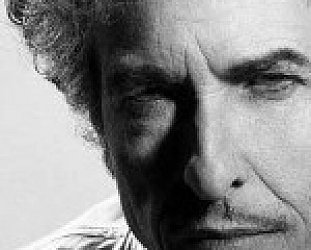
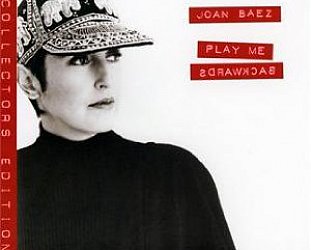
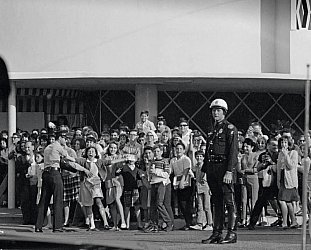

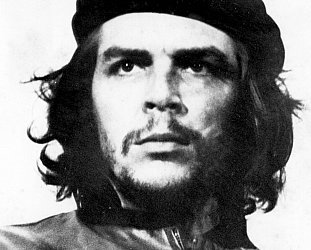
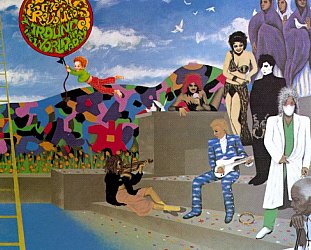
post a comment